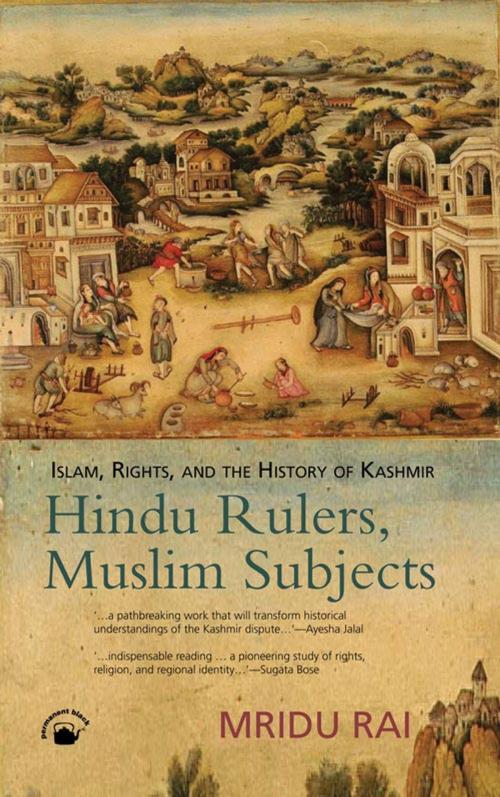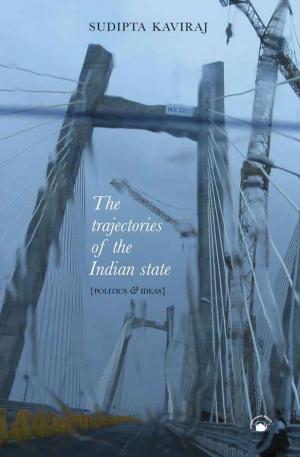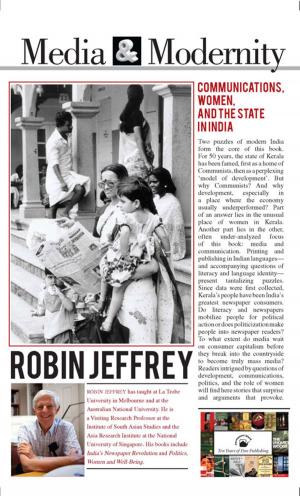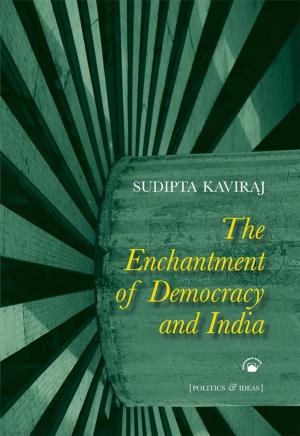Hindu Rulers, Muslim Subjects
Islam, Rights, and the History of Kashmir
Nonfiction, History, Asian, India, Religion & Spirituality, Eastern Religions, Hinduism, Social & Cultural Studies, Political Science| Author: | Mridu Rai | ISBN: | 9788178244112 |
| Publisher: | Permanent Black | Publication: | December 13, 2012 |
| Imprint: | Language: | English |
| Author: | Mridu Rai |
| ISBN: | 9788178244112 |
| Publisher: | Permanent Black |
| Publication: | December 13, 2012 |
| Imprint: | |
| Language: | English |
This is a remarkable work of scholarship which shows how Kashmirs modern Muslim identity came into existence. In doing this, it demonstrates the complex manner in which politics can enforce the creation of religious identity. Kashmir is a hotbed of religious politics. Disputed between India and Pakistan, this territory comprises a large majority of Muslims who are subject to the laws of a predominantly Hindu and increasingly hinduised India. How did religion and politics become so inextricably enmeshed in defining and expressing the protest of Kashmirs Muslims against Hindu rule? This book is a brilliant historical study of this central issue in the troubled politics of South Asias most picturesqueand most volatileprovince. Mridu Rai argues that the origins of present political conditions and problems lie in the hundred-year period preceding the creation of India and Pakistan, when Kashmir was ruled by a succession of Hindu Dogra kings. The Dogras wielded power under the aegis of British imperialism, and the collusion of colonial state and collaborating vassals played no small part in shaping a decisively Hindu sovereignty over a subject Muslim populace. This sovereignty took a novel political form in Kashmir. It was characterized by an unprecedented degree of control by rulers intent on establishing and legitimizing their authority via Hindu forms of patronage, tradition, ritual, and related strategies. The regions Muslims, unlike its Hindus, were left out of the power-sharing arrangements not simply because of their religion but because, as Muslims, they became irrelevant to the legitimizing devices installed by the Hindu Dogras and their British overlords. Therefore, the protest of Kashmiri Muslims historically represents not so much a defense of Islam as a defence of their rights by a community defined specifically as Muslims by an explicitly Hindu ruling hierarchy. This explains the development of a consciousness among Kashmiri Muslims of religiously-based neglect, as well as the emergence of their ongoing political protest. Everyone interested in Kashmir and its history will want this book, as will those who study religion, politics, legal rights, and community identities.
This is a remarkable work of scholarship which shows how Kashmirs modern Muslim identity came into existence. In doing this, it demonstrates the complex manner in which politics can enforce the creation of religious identity. Kashmir is a hotbed of religious politics. Disputed between India and Pakistan, this territory comprises a large majority of Muslims who are subject to the laws of a predominantly Hindu and increasingly hinduised India. How did religion and politics become so inextricably enmeshed in defining and expressing the protest of Kashmirs Muslims against Hindu rule? This book is a brilliant historical study of this central issue in the troubled politics of South Asias most picturesqueand most volatileprovince. Mridu Rai argues that the origins of present political conditions and problems lie in the hundred-year period preceding the creation of India and Pakistan, when Kashmir was ruled by a succession of Hindu Dogra kings. The Dogras wielded power under the aegis of British imperialism, and the collusion of colonial state and collaborating vassals played no small part in shaping a decisively Hindu sovereignty over a subject Muslim populace. This sovereignty took a novel political form in Kashmir. It was characterized by an unprecedented degree of control by rulers intent on establishing and legitimizing their authority via Hindu forms of patronage, tradition, ritual, and related strategies. The regions Muslims, unlike its Hindus, were left out of the power-sharing arrangements not simply because of their religion but because, as Muslims, they became irrelevant to the legitimizing devices installed by the Hindu Dogras and their British overlords. Therefore, the protest of Kashmiri Muslims historically represents not so much a defense of Islam as a defence of their rights by a community defined specifically as Muslims by an explicitly Hindu ruling hierarchy. This explains the development of a consciousness among Kashmiri Muslims of religiously-based neglect, as well as the emergence of their ongoing political protest. Everyone interested in Kashmir and its history will want this book, as will those who study religion, politics, legal rights, and community identities.















